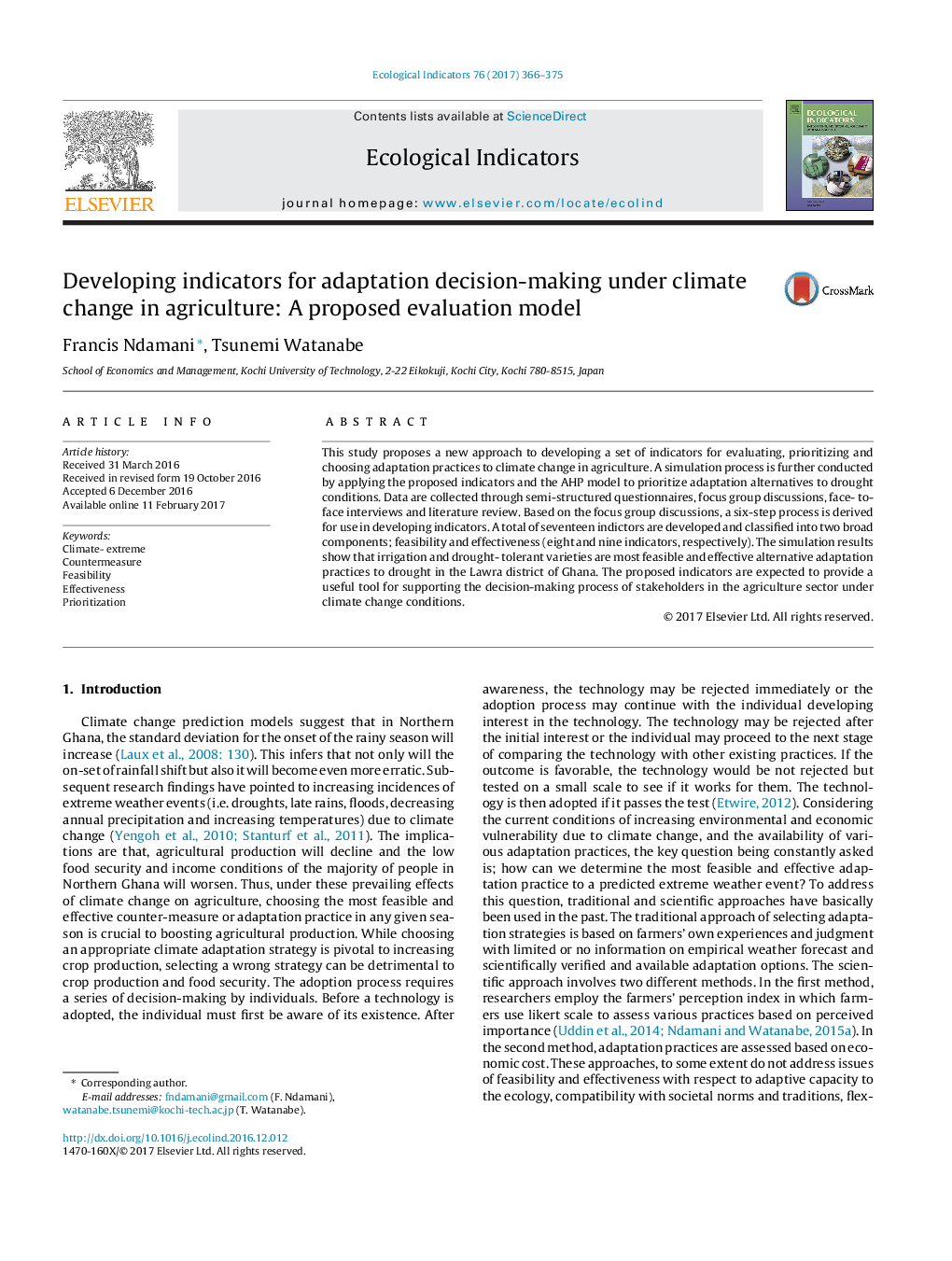| Article ID | Journal | Published Year | Pages | File Type |
|---|---|---|---|---|
| 5741700 | Ecological Indicators | 2017 | 10 Pages |
This study proposes a new approach to developing a set of indicators for evaluating, prioritizing and choosing adaptation practices to climate change in agriculture. A simulation process is further conducted by applying the proposed indicators and the AHP model to prioritize adaptation alternatives to drought conditions. Data are collected through semi-structured questionnaires, focus group discussions, face- to-face interviews and literature review. Based on the focus group discussions, a six-step process is derived for use in developing indicators. A total of seventeen indictors are developed and classified into two broad components; feasibility and effectiveness (eight and nine indicators, respectively). The simulation results show that irrigation and drought- tolerant varieties are most feasible and effective alternative adaptation practices to drought in the Lawra district of Ghana. The proposed indicators are expected to provide a useful tool for supporting the decision-making process of stakeholders in the agriculture sector under climate change conditions.
